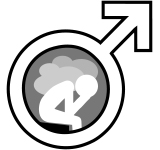Men and Mental health
‘Being a man’ means being strong and asking for help when needed
According to the National Mental Health Survey 2015-16, the overall prevalence of mental morbidity was higher among men (13.9%) than among women (7.5%) and the prevalence of alcohol use disorders in men was 9% as against 0.5% in women. As per estimates, nearly 250 Indian men died by suicide every day in 2018, a number that is more than double the number of women. More than 70% of callers to India’s national mental health helpline, KIRAN, since its launch in September 2020, have been men.
Although there is a rising trend among young men to ask for help, the vast majority do not seek help but rather suffer in silence. Stigma is one of the main reasons why men do not seek help for mental health issues. This stigma tends to affect men disproportionately, and societal expectations and traditional gender roles are thought to play a big part in this. The concept of ‘manliness’ as being strong and in control can mean it is seen as a weakness to ask for help. If men feel a pressure to appear strong, this can stop them from opening up. This can both cause and exacerbate mental health problems.

WARNING SIGNS
Men and women can develop most of the same mental disorders and conditions but may experience different symptoms.
Some symptoms include:
- Anger, irritability, or aggressiveness
- Noticeable changes in mood, energy level, or appetite
- Difficulty sleeping or sleeping too much
- Difficulty concentrating, feeling restless, or on edge
- Increased worry or feeling stressed
- Misuse of alcohol and/or drugs
- Sadness or hopelessness
- Suicidal thoughts
- Feeling flat or having trouble feeling positive emotions
- Engaging in high-risk activities
- Aches, headaches, digestive problems without a clear cause
- Obsessive thinking or compulsive behaviour
- Thoughts or behaviours that interfere with work, family, or social life
- Unusual thinking or behaviours that concern other people

WHAT TO DO IF YOU HAVE MENTAL HEALTH ISSUES
(or how to help others you know)
- Talk about your feelings to people close to you
- Keep active - exercise regularly
- Eat well
- Stay away from alcohol and other substances
- Ensure adequate sleep
- Avoid too much screen time
- Keep in touch with family and friends
- Take a break from work
- Do something you are good at or something that you like
- Accept who you are
- Ask for professional help if you are unable to cope
We need to revisit the concept of ‘manliness’ and encourage a culture that supports men to talk about their mental health issues and seek help when needed.



